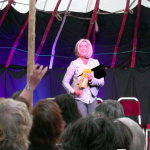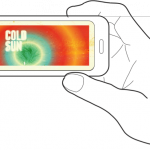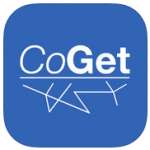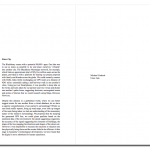Producing Data: Practices, Materialities, Values
An interdisciplinary symposium
3rd – 4th September 2014, University of Edinburgh
Hosted by: Design Informatics, Edinburgh College of Art, University of Edinburgh
Organisers: Chris Speed, Gian Marco Campagnolo, Siobhan Magee and New Media Scotland
The term ‘data’ is ubiquitous across our homes and workplaces, academic and mainstream media, political discourses and ethical disputes. Sometimes its presence can take the form of representations of various facets of our lives, such as statistics or visualisations of figures. Data is a part of the contracts that we make with each other, companies that we deal with, and the fallout of the devices that we use. Our positions within these relationships change our competences based upon whether we are a professional producer of data or an amateur. In other instances, ‘data’ appears not as information in its own right, but as a lens through which to discuss, and often critique, governments and corporations. The reverberations of Big Data controversies for example, suggest that data is developing to be one of the key political issues of our time: a point of convergence for politics and economics, technology, and statecraft.
Despite – or perhaps because of – this ubiquity, the meaning of data is blurred. However, rather than calling for the creation of a rigid definition of data, this context suggests the need for comparison and discussion. The aim of this workshop, therefore, is to bring together those working on data-related topics from a range of disciplines and perspectives in order to explore a number of themes:
- The relationships between different generators of data and the constitution of the data that they produce.
- Campaigning, hacker, and hobby communities forming around open data.
- Alternative knowledge communities that engage in citizen-led science, social science and journalism made possible by creating, sharing and leaking data.
- The spatial organization and location of data and its ongoing distribution and deformation through socio-material transportation.
- How the truth claims of data are substantiated and compromised by individuals, communities, institutions.
- The marketisation of data and creation of markets through data.
- Affective and aesthetic aspects of data.
- Understanding data through its function and dysfunctions in everyday and professional settings.
- Making data material, accountable and reportable for performing economies, states and environments.
Confirmed keynote speakers: Sian Lindley (Microsoft Research), Sophie Woodward (University of Manchester), Hermann Zschiegner (TWO-N)
Sian Lindley
 Data and its Street Life- What does the abundance of data and proliferation of data-making methods mean for the ordinary person, the person on the street? What wider relevance might data have in ordinary life, to community, citizenship and democratic participation? The Tenison Road project is a year-long endeavour aiming to explore precisely these questions, through engaging with a community and the issues that have been vocalized and prioritised by them. It is intended to be a project led by the people on the street, in which they decide how data might have some relevance to their own concerns. In this talk, I will give an overview of some of the data-related activities that are underway, which range from traffic monitoring to archiving local history, and initial results with regards to some of the challenges that emerge when dealing with data and community.
Data and its Street Life- What does the abundance of data and proliferation of data-making methods mean for the ordinary person, the person on the street? What wider relevance might data have in ordinary life, to community, citizenship and democratic participation? The Tenison Road project is a year-long endeavour aiming to explore precisely these questions, through engaging with a community and the issues that have been vocalized and prioritised by them. It is intended to be a project led by the people on the street, in which they decide how data might have some relevance to their own concerns. In this talk, I will give an overview of some of the data-related activities that are underway, which range from traffic monitoring to archiving local history, and initial results with regards to some of the challenges that emerge when dealing with data and community.
Siân Lindley is a researcher in the Socio-Digital Systems group at Microsoft Research in Cambridge. Her research involves studies of technologies in use and the practices that are built up around them. In her most recent work, she has been exploring issues relating to community data by working on a collaborative project with residents of a single street in Cambridge, and has been focusing on how people manage and keep their digital content in the current landscape of cloud computing and social media. She has a PhD in Psychology from the University of York and an MSc in Human-Centred Computing Systems from the University of Sussex.
Sophie Woodward
 Turning lives into data: material and relational vitalities of dormant things and spaces- Empirical research within the social sciences reaches into almost every conceivable area of social and personal lives; in the wake of the sensory and the material turn, this reach includes the material, tactile and visual facets of these lives. This carries implications for what kind of theories and methods we employ but also what kind of data we produce. As someone who carries out research into material culture in the home – taking place in the intimate spaces of wardrobes, cupboards, attics and shelves – I will here address what the implications are of turning personal life and relationships into data that is analyzed. Although qualitative social science does not try lay claims to objectivity, it still encourages rigor and systematic analysis – an issue that has taken on even more pertinence in light of the supposed crisis of empirical sociology when faced with the proliferation of ‘big data’. This raises the issue of how we produce data that is academically rigorous that still retains its vitality. Vitality here is understood as the entangled lives of people and things wherein the material and the sensual are inseparable qualities. What are the transformations that take place that turn these personal and relational vitalities into data? It will also address what counts as data – can a thing such as a table be data? I will explore these issues through research that I am undertaking into ‘dormant things’ that accumulate in spaces in the home such as drawers, shelves and attics. The project is developing methods to understand the material vitalities of things, as well as ways in which data is not just an end point prior to analysis, but a means to provoke responses and further data generation. Data will also be participant generated as the project will develop an approach to citizen-lead social science to elicit people’s own photographs and responses to the topic of dormant things and dormant spaces.
Turning lives into data: material and relational vitalities of dormant things and spaces- Empirical research within the social sciences reaches into almost every conceivable area of social and personal lives; in the wake of the sensory and the material turn, this reach includes the material, tactile and visual facets of these lives. This carries implications for what kind of theories and methods we employ but also what kind of data we produce. As someone who carries out research into material culture in the home – taking place in the intimate spaces of wardrobes, cupboards, attics and shelves – I will here address what the implications are of turning personal life and relationships into data that is analyzed. Although qualitative social science does not try lay claims to objectivity, it still encourages rigor and systematic analysis – an issue that has taken on even more pertinence in light of the supposed crisis of empirical sociology when faced with the proliferation of ‘big data’. This raises the issue of how we produce data that is academically rigorous that still retains its vitality. Vitality here is understood as the entangled lives of people and things wherein the material and the sensual are inseparable qualities. What are the transformations that take place that turn these personal and relational vitalities into data? It will also address what counts as data – can a thing such as a table be data? I will explore these issues through research that I am undertaking into ‘dormant things’ that accumulate in spaces in the home such as drawers, shelves and attics. The project is developing methods to understand the material vitalities of things, as well as ways in which data is not just an end point prior to analysis, but a means to provoke responses and further data generation. Data will also be participant generated as the project will develop an approach to citizen-lead social science to elicit people’s own photographs and responses to the topic of dormant things and dormant spaces.
Sophie Woodward is a Lecturer in Sociology at the University of Manchester who carries out research into material culture and everyday consumption practices. She has carried out research into women’s wardrobes, denim jeans and street fashion and is the co-founder of the Global Denim Project. She is the author of Why Women Wear What they Wear (2007) and Blue Jeans: the art of the ordinary (with D. Miller, 2012) and Global Denim (2011). She is currently researching dormant things that accumulate within the home.
Hermann Zschiegner
 Hermann’s talk will provide a data-centric account of the discovery, collection, and learning and valuation of art online.
Hermann’s talk will provide a data-centric account of the discovery, collection, and learning and valuation of art online.
Art Director / Co-Founder at TWO-N Inc., a New York based design studio committed to experimentation and collaboration in the fields of interaction design, data visualization, and user interface design. Clients include Bloomberg LP, The New York Stock Exchange, SAP, WNYC, and the Data Morphosis Group.
Hermann’s work at TWO-N has earned him awards, including two Webby Award nominations (2010 & 2012) and three consecutive Communication Arts “Award for Design Excellency” (2010, 2011 & 2012). His StockMapper website was included on Time Magazines list of the “50 Best Websites of 2010” and his “Budget Map” was a finalist in the “Eyebeam Data Viz Challenge” and was nominated for the 2012 Data Journalism Awards in the Data visualisation and storytelling (national/international) category.
Hermann is the co-author and editor of “Various Small Books” (MIT Press, 2013) a book about books made in homage of the work of Ed Ruscha. He has also self-published a number of photo-books, which were shown at the 2011 Rencontres d’Arles in the group show FROM HERE ON, curated by Clément Chéroux, Joan Fontcuberta , Erik Kessels, Martin Parr, and Joachim Schmid. In 2012 his books were part of the ABC/POD show at Printed Matter, New York and the DIY: Photographers & Books exhibition at the Cleveland Museum of Art, and in 2013 his work was part of the Ruscha & Co exhibition at the Gagoisan Gallery in New York and the Museum Brandhorst in Munich.
Workshop format
The majority of the symposium will be made up of keynote presentations and shorter presentations from invited speakers. On the second day, attendees will participate in a workshop and later a discussion session about ideas that have emerged over the course of the event. The symposium will include opportunities for attendees to discuss their own work with keynote speakers. An exhibition of visual/ sensory works that question what data is and how it is produced will run in tandem with the talks and presentations.
Places are free but limited, book your ticket here
If you have any queries about the event please contact Siobhan Magee (siobhan.magee@ed.ac.uk)
Funded by the EPSRC and Design Informatics.
Part of the Internet of Second Hand Things research project with CASA, UCL (University College London)
Related posts

CFP: Algorithmic Practices: Emergent interoperability in the everyday
Algorithmic Practices: Emergent interoperability in the everyday RGS-IBG 2015 Sponsored by: The Hist

NordiCHI Exploring incentivisation in design
Participants: Edinburgh: Chris Speed, Siobhan Magee, Debbie Maxwell, Mark Hartswood Birmingham: Juli

Design Informatics Seminars
This terms talks at the centre… Download poster here Research Seminars Semester 1 T-Room, Flo

“Is Your Marmite Watching You?”
Design Informatics took part in this year’s Edinburgh Fringe with the Beltane Public Engagemen

CoGet
So a brief summary and documentation of the CoGet workshop at Future Everything in March 2014. Acros

A Rhetorical Approach to Gameful Design
A Rhetorical Approach to Gameful Design Paul Coulton, ImaginationLancaster Thursday 1st May 4pm T-Ro

CoGet @ Future Everything
We are experimenting with our social logistics software CoGet at Future Everything in March: http://

Casting Time #2
Casting Time #2 Chris Speed, Margaret Stewart, Jules Rawlinson & Jane Macdonald 17th – 28t

Drawing With Satellites #3 book
Well that took a while! Following the workshop in February I finally got around to laying up the ima
